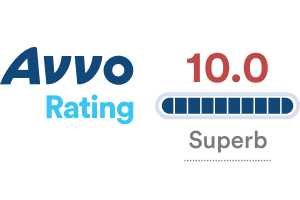Juvenile Crimes
The juvenile justice system in Maryland is vastly different from the adult court system. When charged with a crime as a juvenile, it is important to hire an attorney experienced in handling juvenile matters. The juvenile justice system’s purpose is not to punish the child but to get the child the appropriate treatment so that the child does not continue the criminal behavior.
The juvenile justice system has jurisdiction over crimes committed by anyone under 18. The system also has jurisdiction for probation purposes up until 21 years of age. Even though the juvenile system has jurisdiction over anyone under the age of 18 years old, there are certain crimes for which a child may be charged as an adult. Examples include murder, rape, armed robbery, and handgun offenses.
Children as young as 14 can only be charged as adults for murder and rape. To be charged as an adult for a robbery or handgun offense, the child must be 16. To correct the statement either murder and rape can be added to this sentence or armed robbery and handgun offenses can be removed from the prior sentence. Jurisdiction may be transferred back to the juvenile system under certain circumstances but it requires experience and skillful representation.
There are also circumstances under which the state may attempt to have jurisdiction transferred from the juvenile court to the adult system, even for less serious crimes. The state will file a waiver to the adult system, and it is their burden to convince the court that the juvenile is not amenable to treatment or services within the system. If the state is successful, a juvenile can face the prospect of a permanent criminal record and even incarceration in the adult penal system. For these reasons, it is important to take juvenile cases seriously, regardless of whether a juvenile is originally charged in the adult or juvenile system.
One of the most significant differences between juvenile and adult court is that juveniles are not entitled to a trial by jury. One judge hears all the evidence in the case and decides if there is evidence beyond a reasonable doubt that the crime occurred. Once that judge finds the crime occurred, they must decide if the child needs services from the juvenile system and is therefore delinquent. If the child is determined to be delinquent, the case will move onto the sentencing phase where a juvenile may receive probation, counseling, or be placed in a residential juvenile facility.
The sentencing phase of a juvenile hearing involves many parties. The judge hears from the state, a representative from juvenile services, the parents of the child, and any other witnesses the child wants to speak on their behalf.
Often sentencing is delayed so that evaluations by doctors or psychologists can be completed to help the court make its decision. An experienced and effective attorney can be invaluable in assuring that sentencing information is presented to the court in as favorable a light as possible to the juvenile.
It is extremely important that you hire a knowledgeable, experienced and connected juvenile defense attorney for your child. At Silverman Thompson, our former prosecutors possess insight into the juvenile justice system and know the strategies that will result in the best outcome for your child.
Our attorneys have achieved extraordinary results in juvenile court in cases ranging from serious offenses such as murder, robbery, rape, assault, or simple violations such as liquor violations, disorderly conduct, and loitering.
If you or a loved one requires defense in a case regarding juvenile offenses or a related matter, please contact the criminal defense lawyers at Silverman Thompson toll-free at 800-385-2243 for a free consultation.
Disclaimer: This page is informative in nature. The information contained herein is not to be considered legal advice and there is no attorney-client relationship formed between Silverman Thompson and the reader.










